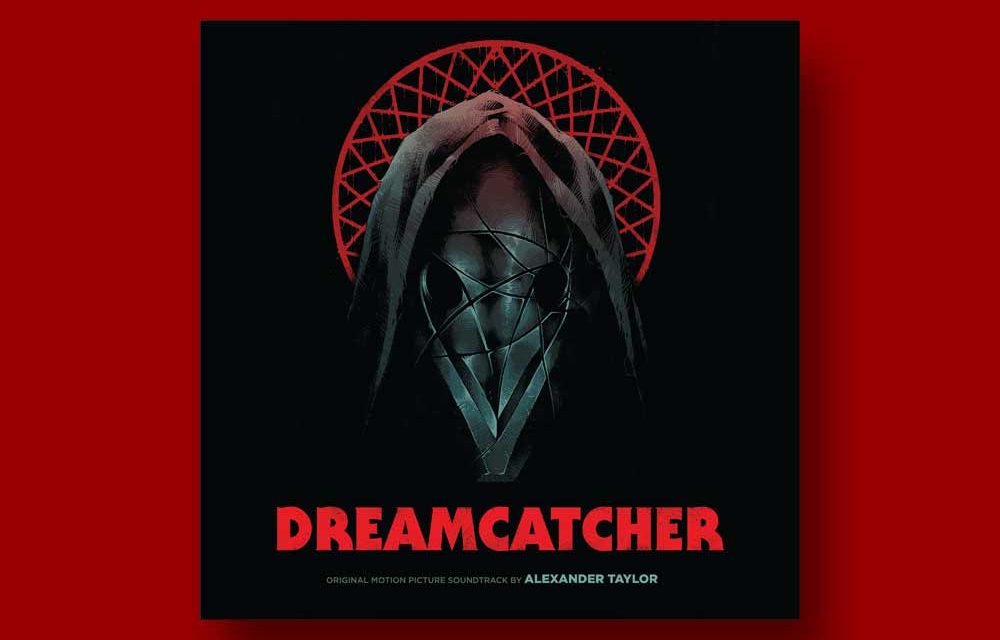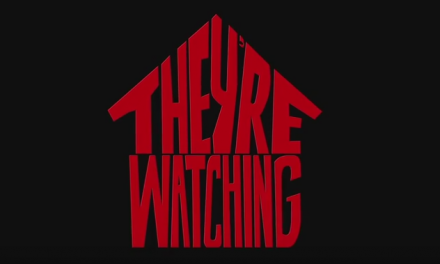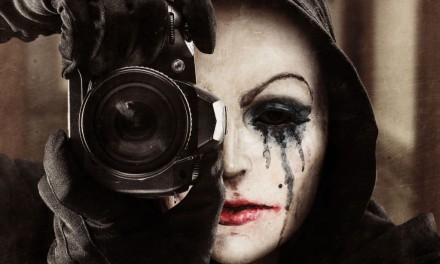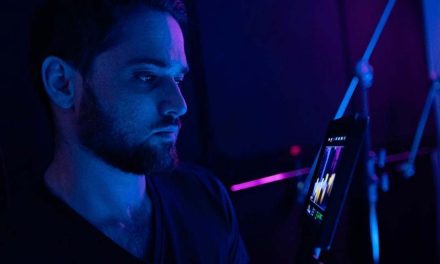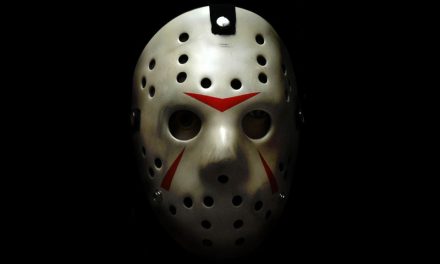Heaven of Horror spoke with Alexander Taylor about his latest film score for Samuel Goldwyn Films’ DREAMCATCHER, the horror/thriller is out now.
Also, read our review of DREAMCATCHER right here >
-The opening scene of Dreamcatcher is classic horror, grabbing the audiences’ attention right out of the gate. Did you pay extra attention to this scene, musically, because it sets the tone for the rest of the film?
– Oh for sure. The first cue out of the gate, you have to establish the musical palette of the film. Like, show the audience what colors you’re painting with. Plus, it was the first cue I had to deliver to the team, so I had to make sure it worked and was memorable.
I wanted the guitar to have some bite, and really punch in on that opening. Like, really have some attitude. It has a kind of mean-spirited tone. I always try to put in a hook or ear-worm in themes too, so they get lodged in your head. That’s most present in the higher registered, jangly guitar riff.
-In a previous interview you said you discussed some different bands and artists with Dreamcatcher director Jacob Johnston for inspiration. Can you talk about who those were?
– Totally! It’s been a while since I thought of those tracks, and the soundtrack really became its own thing after the demo track. There is a surprising amount of Giallo influence in the score that wasn’t really intentional and was pointed out to me recently. Come to think of it, I remember JJ mentioning Claudio Simonetti and some Goblin scores. I love Goblin.
We also referenced other composers like Cliff Martinez, Clint Mansell, John Murphy, and Julian Winding. Then there was more pop-based stuff like SURVIVE, Maelstrom, and The Chromatics. We wanted to make sure to shy away from the “80’s throwback” craze, which I’m sure people will still call out Carpenter references, but that’s bound to happen with any score that’s predominantly synth-based.
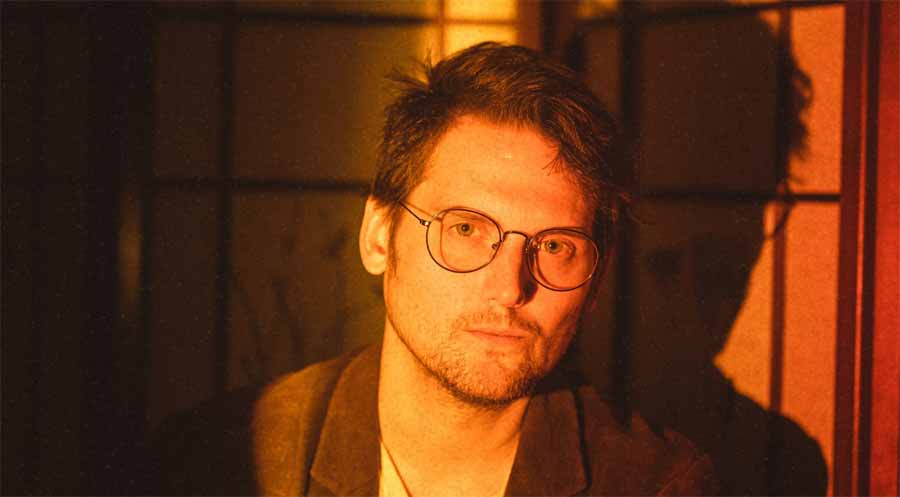
-I’ve heard that some composers score their projects out of order, composing the most important scenes last after they have been fully encompassed in the project. Did you do this with Dreamcatcher?
I’ve heard that as well. There isn’t really a set way to do it. Sometimes it comes down to what is finished first, and how soon you are involved in the project. Like, maybe there’s a fine cut, and they for sure locked a section in the middle. Then maybe you start there.
But if I had my way, I typically try to score the film chronologically if possible. It just makes the most sense to me, and I really think it helps evolve a score organically. Then at the end, I go back and add little things here and there that I liked from later cues.
I think I might try to shake it up a bit on the next one. Just to see how that goes.
-The musical sequence after Pierce takes the pill is pretty unique and distinguishable. What instrument did you use to score this?
Oh man, that’s a tough question. That track is titled Nothing Is But What Is Not. There’s A LOT going on in it. For that particular track, JJ said it should sound like a rave gone wrong, or a dance club in hell. So at its core, it had to have rhythm.
There’s a consistently undulating synth and thick kick pounding throughout. Almost like a migraine. An oppressive feeling evolving into something overwhelming. There was also a lot of sound design elements in the stingers that stab in throughout the track. I wanted those to be disorienting and unrecognizable. Something you’ve never heard before. And it was supposed to replicate a scream, in a sense. I layered in squealing tires, a knife being pulled out a sheath, frantic guitar tapping, a distorted soprano saxophone, a fire alarm, a car alarm… There’s a lot. And each stab has a different combo of each sound.
-How closely did you work with the film’s sound designer?
This is actually a really funny story that I’ve never told anyone yet. Not even JJ. So our sound designer is Jeffery Alan Jones. Crazy talented guy, and also a composer himself, which is crucial information for this particular story.
There was a meeting for the post-production team at his house. At this point, I wasn’t officially offered the gig as the film’s composer, and honestly didn’t know if I got it. Jeff’s place is gorgeous, and he has a giant, amazing set-up. We all sit down in his studio, which also serves as a personal movie theater. I just look around this immaculate room and see all of this gear, a giant mixing console the size of my car, instruments, awards… I thought to myself “is this just a cruel way of telling me that I didn’t get the gig and he’s going to score the film?” At this point, my insecurity knew no bounds.
As we discuss the film, they start asking me questions about the direction of the music. This goes on for a while, and after about an hour, I realized that I was scoring the film, and Jeff was doing the sound design. I was pretty ecstatic and relieved at this point because I really wanted it.
So back to your question, yes, I worked very closely with Jeff. He’s definitely the perfect sound designer, especially if you’re a composer. I think that absolutely stems from the fact that he is a composer as well. He gave me a ton of room to play and based a lot of his tonal/atmospheric design around my score. In fact, I reached out to him at a point to ask for knife sound effects. I wanted to sample them to use in “Nothing Is But What Is Not”, as well as the closing track.
-Are there any horror film scores that have particularly stuck out to you?
Oh, there’s a million! I love horror, and I deeply love horror scores. So bare with me, because this is going to be a long list and in no particular order. Benjamin Wallfisch’s score for the IT remake. One minute, you’re basking tearfully in nostalgic beauty with Beverly’s Theme, and then suddenly you are shaking with fear at Come Join the Clowns, Eds.
More recently, I’ve been spinning Bobby Krlic’s score for Midsommar. That’s truly breathtaking. Try listening to Gassed alone at night with all the lights off. I dare you. To go from that to Fire Temple… I’d play Fire Temple at my wedding.
Goblin’s full body of work is just so fantastic. Suspiria and Tenebrea in particular. James Newton Howard’s score for Signs is so good and vastly underrated. John Harrison’s Day of the Dead and Creepshow. Cliff Martinez’ Contagion. Marco Beltrami’s work in the Scream franchise. Mica Levi’s Under the Skin. Doug Pipe’s Trick R’ Treat. Disasterpeace’s It Follows. Giorgio Moroder’s Cat People. Tangerine Dream’s score for Near Dark. Ennio Morricone’s score for The Hateful Eight and The Thing. And of course, John Carpenter’s entire discography. There’s no escaping his influence on me, and I’m okay with that.
-What do you think is key to scoring a horror film?
I’m still trying to figure that out myself. My great fortune is that I have a friend and manager that is close with a lot of these legendary horror composers. I’m reaching out to a lot of them hoping to find out what the key is. But personally, I think everyone should find their own “key” if that makes any sense.
For me, it’s experimentation. The hunt for a new sound. People are scared of what they don’t understand, right? So I try to come up with something that people can’t immediately identify and pepper those elements throughout my score. I ultimately want each film to have its own sonic staple that people can identify from even one note. It’s certainly a challenge, and who knows if I’m succeeding, but I’m going to keep trying. It’s too fun not to try, anyway.
-You also scored Scream, Queen! My Nightmare on Elm Street. You said that you scored at least 5 different versions of that documentary. What did those other versions sound like?
Oh, still very much in the same camp as what came out. Different variations of themes from the doc, and some other tracks that I’m squirreling away to potentially rework later for future projects.
-Do you have a favorite track from the Scream, Queen! My Nightmare on Elm Street album?
I’m really proud of People Like Me. Not even just because of the double meaning of the title, but the way it always gives me goosebumps when watching the film. It not only helps share Mark’s coda but also serves as a call to action. With the climax of the track dropping at “I’ll be god-damned if I let it happen to another person”…. It always gets me. And musically speaking, it’s just a very textured and emotional track. I feel like it reflects Mark’s life the best.
***
Alexander’s score is also now available on all digital sites.
- Composer Adam Langston Discusses His New Film, I’ll Play Mother - November 1, 2024
- Horror on Netflix in November 2024 - October 28, 2024
- The Platform 2 Ending Explained - October 4, 2024

